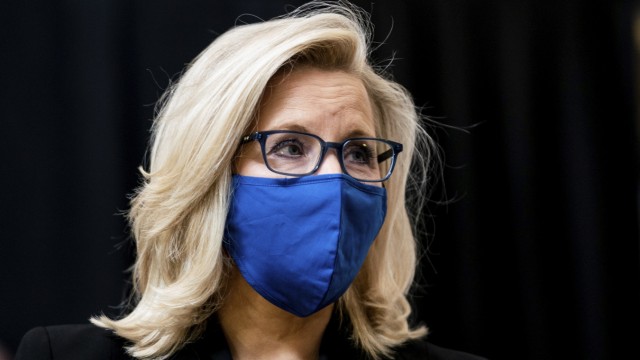
Republicans who voted earlier this year to impeach former President Trump are outpacing their primary challengers in the money race.
Now, the 10 House Republicans who broke party lines in the chamber’s January impeachment vote are heading into the second half of 2021 flush with cash, financial reports filed on Thursday with the Federal Election Commission (FEC) show.
Rep. Liz Cheney (R-Wyo.), who was ousted from her post as the No. 3 House Republican in May, raked in the most cash of the group in the second quarter of the year, raising nearly $1.9 million and closing out June with more than $2.8 million in the bank.
Another pro-impeachment Republican, Rep. Adam Kinzinger (R-Ill.), brought in more than $800,000 for his 2022 reelection bid in the same time frame. He began the second half of the year with more than $3 million in cash on- hand.
Cheney and Kinzinger have emerged as two of the most vocal Trump critics in the House Republican caucus since the Jan. 6 riot at the U.S. Capitol that preceded the former president’s second impeachment. That criticism has earned each of them a set of primary challengers, many of whom are hoping to capitalize on Trump’s remaining influence within the GOP to win their party’s nomination next year.
But so far, none have managed to out-raise Cheney or Kinzinger.
State Sen. Anthony Bouchard, one of the Republicans challenging Cheney, raised $213,000 in the second quarter of the year, according to his Thursday filing. Another one of her primary opponents, state Rep. Chuck Gray, raised about $220,000.
Likewise, Kinzinger out-raised each of his primary challengers.
In districts across the country, the trend was the same. Rep. David Valadao (R-Calif.), who also voted to impeach Trump, pulled in some $350,000 more than his main primary opponent Chris Mathys.
In Michigan’s 6th congressional district, Rep. Fred Upton (R-Mich.) raised about $242,000 in the second quarter, more than twice as much as his closest rival Steve Carra, who reported raising about $108,000.
And in Ohio’s 16th congressional district, another pro-impeachment Republican, Rep. Anthony Gonzalez (R-Ohio), outpaced his Trump-endorsed primary opponent Max Miller in the money race, raising $602,000 to Miller’s $443,000.
Sen. Lisa Murkowski (R-Alaska), the only one of the seven GOP senators who voted for impeachment to face reelection next year, pulled in nearly $1.15 million over the past three months. Her Trump-backed primary challenger Kelly Tshibaka raised just over $544,000, less than half as much as Murkowski.
On the House side, only one GOP incumbent who voted to impeach Trump was bested in second-quarter fundraising by a primary opponent: Rep. Tom Rice (R-S.C.). Rice raised about $326,000 in the three-month period, while one of his challengers, conservative media personality Graham Allen, reported raising just over half-a-million dollars.
To be sure, fundraising isn’t always a good measure of a candidates’ odds of winning, and the Republicans who voted to impeach Trump are still likely to face uphill battles next year. The former president, who remains deeply influential among the GOP voter base, has already vowed to campaign against Republicans who have broken with him.
But even in races without a pro-impeachment GOP incumbent, Trump’s endorsement didn’t necessarily equate to fundraising supremacy.
Rep. Mo Brooks (R-Ala.), Trump’s choice to replace retiring Sen. Richard Shelby (R-Ala.) in Alabama, was out-raised by Shelby’s preferred candidate Katie Britt by $1.4 million, FEC filings show. The same is true in North Carolina, where former Gov. Pat McCrory raked in nearly $300,000 more than Rep. Ted Budd (R-N.C.) in the state’s GOP Senate primary. Trump endorsed Budd in early June.
Via The Hill


